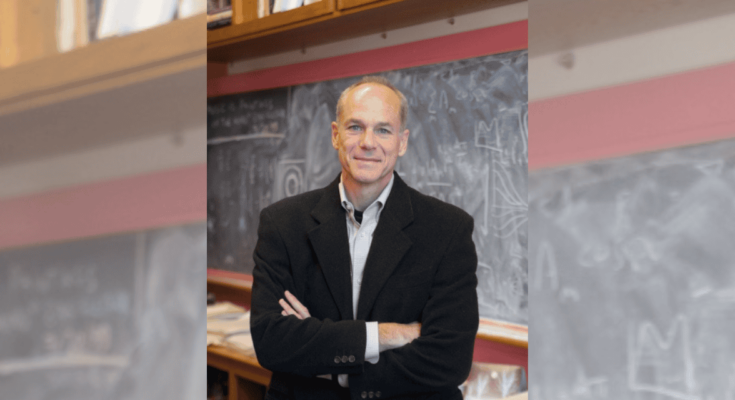When we think of a new year, the beginning of the 25th year of this new year, our minds often turn to very important questions. God gives us another year to live for him and others. How do we find the most important things in this New Year?
The point of non-religious people and critics of Christianity and faith is that science is where it’s at in terms of finding real answers to the biggest questions about life and existence in the universe. They insist that science can accurately tell us everything we need to know about the great questions of life, while this religion is simply motivated by superstition.
But is this true?
Can science really give us the answer to everything that has meaning? The hope of those who say it can be as great as it is wrong. This extreme belief in the ability of science is called scientism and it is important that we all understand its limits.
Late last year, professor Marcelo Gleiser, a theoretical physicist at Dartmouth College, published a short and important essay that outlines the practical limits of science in answering some of humanity’s biggest questions about life, truth, and existence. His piece is as impressive as it is humble.
What is the Universe Made of?
Out of the gate, Gleiser explains that science still has more questions than answers about the basic structure of the universe itself. The professor explains that for all the amazing advances that science has made recently, “we only know about 5 percent of the Universe.” He adds, “Mystery is another 95%, made up of dark matter (about 27%) and dark energy (about 68%). Gleiser refers to scientific agnosticism here,
We don’t know what dark matter or dark energy is, and there are speculative explanations that try to change Einstein’s theory of gravity to accommodate what he saw and eliminate darkness.
He concludes that “after decades we are still searching, we [scientists] stay ignorant.” It is a refreshing welcome.
How Did Life Come to Be?
Although he is as convinced as other evolutionists and non-religious people are about the origin of life, Gleiser believes that science does not have real, final answers. He believes “the mystery here is how the parts of non-living atoms were assembled into more complex molecules that eventually became the first living thing, the molecular machine.” a chemical that can change food and reproduce.” The complexity of life is too complex for science.
And what about the seeming orderliness of life, the fact that things develop purposefully and logically, evidenced by the normal and natural seasons we all enjoy? How does that happen? Gleiser tells us “The fact that living things are matter with a purpose is still a deep mystery” in science.
In other places, Gleiser explains that the very question of what life really is is anti-science because it spills blood into fields outside the power of science. After all, the word “animal” for living creatures comes from the Latin anima which means “soul.”
What Makes Us Human?
The next big question that professor Gleiser tells us that scientists have failed to answer is: What makes humans really different from animals? He explains our DNA is almost identical to gorillas, but we have three times as many neurons and our development is more advanced than any other animal. Why is that so? If all living things evolved or came from a common source, what made humans so different from all other animals? Until now, he admits, science does not have a clear and logical answer to this very important question. Just questions.
What is Care?
Care is so important to our being that we often don’t realize it. It’s just that, but it is i it is what allows you to read and think about this sentence. Without mind, life as we know and experience it as humans would not be possible. It is our basic human functioning system. But science has so far failed to adequately answer the question of how the human mind has developed, but also what it actually is. Dr. Gleiser asks,
How does the brain create our own, unique experience of being unique? And why does it make sense at all? What is its evolutionary purpose, if any?
Science cannot answer this question because consciousness cannot be seen and tested.
Why Does It Matter?
As an observation for human experience, asking why something exists is a fundamental question for the physical world. Again, science does not have a satisfactory answer.
Matter itself is a scientific puzzle because according to the laws of physics, “every particle of matter—every electron, proton, neutron—must have an antimatter companion, like a twin.” .” But that’s not the case. Gleiser explains that “the mystery is what happened to antimatter” and science “has been trying to find this point for decades without much success.”
Thus, science clings to its deepest and unsolvable mysteries. Any good philosopher of science will admit this. The idea that science is the surest way to all knowledge is scientific theology.
Yes, religious faith also has many unanswered questions. It trades in secrecy and is limited in its knowledge. Like science.
This weakness of science is not a criticism of science because it is an amazing tool that allows people to understand a lot about ourselves and the larger world. Science actually emerges from a Christian worldview where it is understood that God created an orderly universe that works logically and is worthy of our scrutiny. It’s a reasonable thing.
We do not know for sure that we will be given the next breath or the sunrise of tomorrow, but it is a very reasonable thing that we will be given because of the arrangement of nature. Creation is more faithful than it appears, and Christianity brought that understanding to the world from paganism.
But science cannot do everything. It has deep authenticating powers. But it also has its real limitations, like everything else, except God’s. And anyone who says that science reliably answers all of our pressing questions shows that he is not a good student of the discipline.
#Science #Answer #Biggest #Questions #Life #Existence



